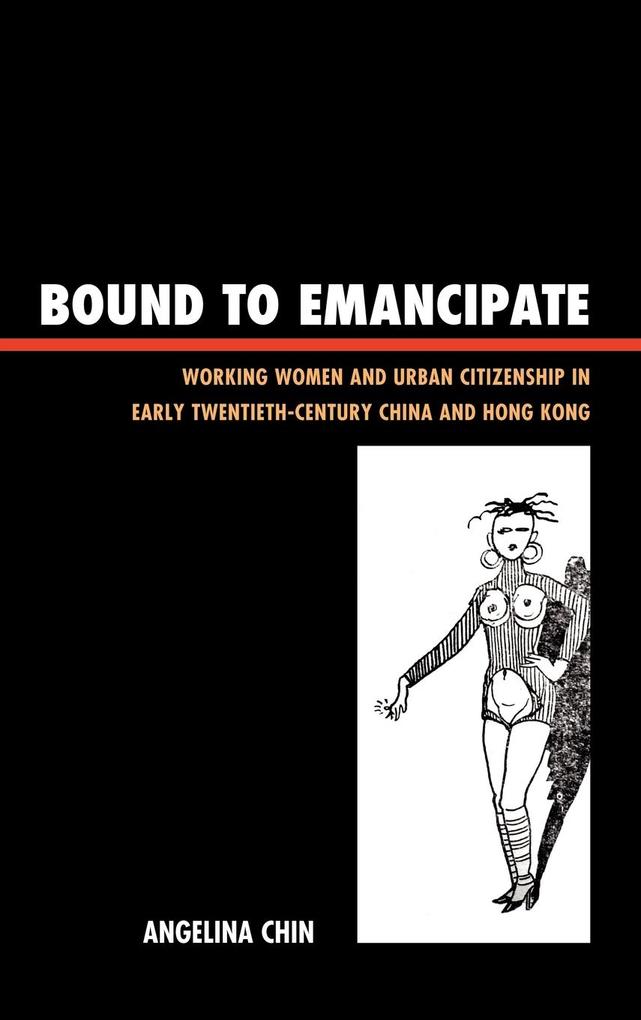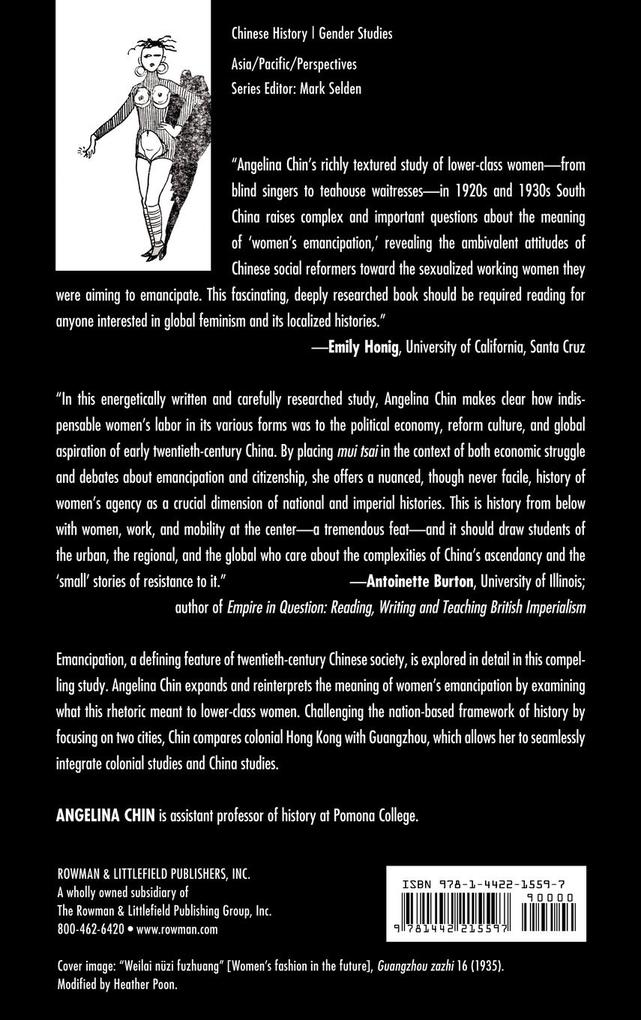
Zustellung: Fr, 30.05. - Di, 03.06.
Versand in 1-2 Wochen
VersandkostenfreiBestellen & in Filiale abholen:
Emancipation, a defining feature of twentieth-century Chinese society, is explored in detail in this compelling study. Angelina Chin expands and reinterprets the meaning of women's emancipation by examining what this rhetoric meant to lower-class women. Challenging the nation-based framework of history by focusing on two cities, Chin compares colonial Hong Kong with Guangzhou, which allows her to seamlessly integrate colonial studies and China studies.
Inhaltsverzeichnis
Chapter 1: Introduction: Geographies of Emancipation
Chapter 2: British Colonialism and Regulating Women in Hong Kong
Chapter 3: Emancipating Women from Social Customs (Fengsu) in 1920s Guangzhou
Chapter 4: Nü ling and Nü Zhaodai in 1920s and 1930s Guangzhou and Hong Kong
Chapter 5: The Fenghua Protection Movement in Guangzhou, 1929-1935
Chapter 6: Social Control through Charity: The Role of the Hong Kong Po Leung Kuk in the 1930s
Chapter 7: Testimonies from the Po Leung Kuk
Chapter 8: Women Service Workers and Labor Activism
Conclusion: Lower-Class Women, "Emancipation," and Urban Citizenship
Glossary
Works Cited
Chapter 2: British Colonialism and Regulating Women in Hong Kong
Chapter 3: Emancipating Women from Social Customs (Fengsu) in 1920s Guangzhou
Chapter 4: Nü ling and Nü Zhaodai in 1920s and 1930s Guangzhou and Hong Kong
Chapter 5: The Fenghua Protection Movement in Guangzhou, 1929-1935
Chapter 6: Social Control through Charity: The Role of the Hong Kong Po Leung Kuk in the 1930s
Chapter 7: Testimonies from the Po Leung Kuk
Chapter 8: Women Service Workers and Labor Activism
Conclusion: Lower-Class Women, "Emancipation," and Urban Citizenship
Glossary
Works Cited
Mehr aus dieser Reihe
Produktdetails
Erscheinungsdatum
29. März 2012
Sprache
englisch
Seitenanzahl
302
Reihe
Asia/Pacific/Perspectives
Autor/Autorin
Angelina Chin
Verlag/Hersteller
Produktart
gebunden
Gewicht
644 g
Größe (L/B/H)
235/157/22 mm
ISBN
9781442215597
Entdecken Sie mehr
Pressestimmen
This well-written, thoughtfully researched book presents new insights on the meaning of 'women's emancipation' from a comparative, gender, and regional perspective during a particular era. The volume's comparative use, in regional context, of its documentary and secondary sources makes for a refreshing approach to this issue. Women and Gender in Chinese Studies Review Careful attention to language marks this thoughtful study of lower-class women in 1920s and 1930s South China. Chin (Pomona College) analyzes how social commentators discussed the project of 'emancipating' (jiefang) women in revolutionary Guangzhou and compares that to the discourse of protection of helpless females in British-controlled Hong Kong. A range of occupations was available to poor women, primarily in various forms of service. In Guangzhou, emancipation was expected to lead to service to the nation; women were to bind themselves to the ideals of patriotic citizenship. Service workers, however, found gaining recognition within the labor movement difficult. In Hong Kong, the colonial government sought to regulate women's roles to promote social order. The colony's Chinese elite responded with their own ideas of charity for unattached females, including the famous Po Leung Kuk (Society for the Protection of Women and Children). Chin includes a chapter of 'testimony' from women admitted to the Po Leung Kuk, who were routinely interviewed by the staff. This part of the book is a helpful addition to Maria Jaschok's pioneering work Concubines and Bondservants: A Social History (CH, Sep'89, 27-0452). Summing Up: Recommended. CHOICE In this energetically written and carefully researched study, Angelina Chin makes clear how indispensable women's labor in its various forms was to the political economy, reform culture, and global aspiration of early twentieth-century China. By placing mui tsai in the context of both economic struggle and debates about emancipation and citizenship, she offers a nuanced, though never facile, history of women's agency as a crucial dimension of national and imperial histories. This is history from below with women, work, and mobility at the center-a tremendous feat-and it should draw students of the urban, the regional, and the global who care about the complexities of China's ascendancy and the 'small' stories of resistance to it. -- Antoinette Burton, University of Illinois; author of Empire in Question: Reading, Writing and Teaching British Imperialism Angelina Chin's richly textured study of lower-class women-from blind singers to teahouse waitresses-in 1920s and 1930s South China raises complex and important questions about the meaning of 'women's emancipation,' revealing the ambivalent attitudes of Chinese social reformers toward the sexualized working women they were aiming to emancipate. This fascinating, deeply researched book should be required reading for anyone interested in global feminism and its localized histories. -- Emily Honig, University of California, Santa Cruz
Bewertungen
0 Bewertungen
Es wurden noch keine Bewertungen abgegeben. Schreiben Sie die erste Bewertung zu "Bound to Emancipate" und helfen Sie damit anderen bei der Kaufentscheidung.



































